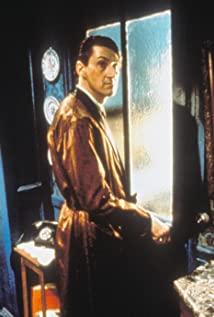Therefore, I understand the silence and alienation of this woman. Especially in the scene when the employer asked her to leave, the camera kept facing her cold, unshakable face, and her big eyes were staring straight at the other person without revealing the inner waves. Many people have this expression when they face reprimands from teachers, parents and bosses. Even if he knew that he was wrong, he would turn on the TV rebelliously-in fact, it was just trying to stabilize the life that had just been hit, pretending that it was still on its original track.
Fortunately there are books. Many sensitive and introverted people use reading and thinking to transcend the unsatisfactory reality and construct their own reason and spirit. Unfortunately, Sophie missed this important means of self-rescue. She only has that TV, which broadcasts boring programs all day long. There is also a girlfriend with a higher negative energy index-Competing with others for miserable experiences is not a good way to dispel loneliness, and pulling hatred with a cynical person will only bring people into a deeper abyss.
Why is she illiterate? In this era and country where national education has long been universal, I can't blame employers for feeling "who can think of it". According to her literacy textbook, she "studied" the movements and expressions of the note, we can see that she was also full of resentment and pain about it. Is the suspicion of burning her paralyzed father related to this obviously problematic family education? If your parents made an ignorant daughter, you can't blame her for smiling and saying "my father smells of urine" one day.
It is undeniable that the relationship between employers and employees is always a headache. It is completely impersonal, which is obviously not conducive to mobilizing the enthusiasm of labor; but if you go too close, it will affect the necessary management and restraint. The identity of the hero in the film is set as the factory owner is a smart way. This kind of professional background is relatively familiar in handling the employment relationship, and will not be procrastinated psychologically. If you are an indecisive teacher, you can probably write a dozen "moral stories" before you make up your mind to fire the other party.
In this factory owner’s family, the prudence of the middle class is fully displayed: courtesy and care are not lacking, and general small mistakes can be tolerated (for example, Sophie buggers at a birthday party), but the accumulated dissatisfaction exceeds the bottom line. The rewards and punishments are clear. What’s interesting is that the person who finally had a head-on conflict with Sophie was the one who was most "humane" to her: Melinda used a radical youth to criticize her parents for the treatment of Sophie from the beginning; she paid her back when she went on vacation. Send her a postcard; after discovering the truth, she offered to help her study... However, this idealistic kindness and care has really hit a big nail-Sophie’s "shame" of being illiterate is far More than the imagination of a girl who is not deeply involved in the world. Faced with the complex human nature in reality, the "caring for others" taught to her by the book immediately exposed her embarrassment. This is also the ultimate victory of pessimistic sociology: the kindness of the master is still the "master"; even if they hush, Sophie will only show an unfettered smile in front of Jeanne.
If Sophie is trapped in the psychology of sensitivity and alienation, then Jeanna’s coldness stems from the rather bloody "Evolution of Luther": the application for an actor was unsuccessful (can be regarded as a frustration of life pursuit), and she was unmarried. The pregnancy was abandoned, and the daughter died in an accident. And, "No one helps me", "No one tells me what to do". As a result, the lonely and frustrated postman in the small town began to steal other people's letters and mock the church's "charity." Unexpectedly, these petty "retaliation society" suddenly escalated at the end of the film and turned into homicides.
How much does Sophie's last outburst have to do with Jeanna's "instigation"? In fact, as an illiterate, it is doubtful whether she can understand the meaning of the word "exploitation". Those shots were more like venting all her despair: this world belongs to people who are literate, people who can "use machines". And she, even the opportunity to sell the simple labor of sweeping and cooking, has to strive for and maintain with great pains. She is not the kind of obsessive person like Jeanna, but people have the right to turn her away easily after eating her cooking, because they have already paid for it. In the final analysis, employment is just a kind of transaction, and all kinds of "scene work" in getting along are just passing embellishments.
Although Chabrol arranged a car accident that was more blunt than the goddess at the end (to make the priest cause the accident is even more superfluous), it can be said that he used the force of milking and handed the "evidence" to the police. But it doesn't matter whether Sophie will be arrested or not: she disappears into the darkness, just like her world that has never seen the light.
View more about La Cérémonie reviews











